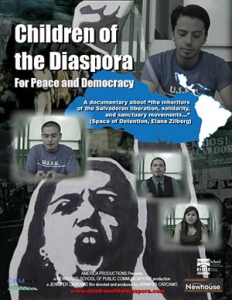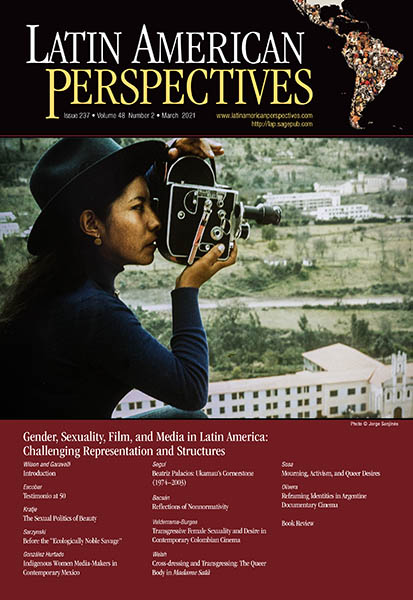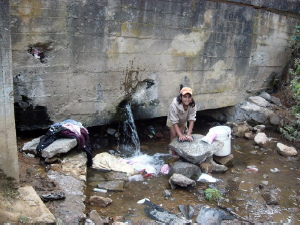 Children of the Diaspora: For Peace and Democracy (2013), a film directed by Jennifer Cárcamo and produced with the support of the Centro de la Memoria Histórica Salvadoreña, documents the journey of a group of university students from California to El Salvador, the homeland of their parents and for some of them their own birthplace. The students are members of the Unión Salvadoreña de Estudiantes Universitarios, a transnational organization committed to political consciousness-raising among Salvadoran youth. The film documents the group’s trip to El Salvador as part of a delegation invited to observe the 2009 presidential campaign. This election, in which Mauricio Funes won the presidency, would turn out to be historical because, for the first time, a member of the Frente Farabundo Martí para la Liberación Nacional won the office. The opening sequence of the film, set to Silvio Rodriguez’s “Sueño con Serpientes,” makes the goals of Cárcamo’s project clear: to gather the evolving perspectives of this group of young students (from schools such as the University of California and the California State University system) as they confront the troubled narratives and, in some cases, the historical lacunae passed down from their parents.
Children of the Diaspora: For Peace and Democracy (2013), a film directed by Jennifer Cárcamo and produced with the support of the Centro de la Memoria Histórica Salvadoreña, documents the journey of a group of university students from California to El Salvador, the homeland of their parents and for some of them their own birthplace. The students are members of the Unión Salvadoreña de Estudiantes Universitarios, a transnational organization committed to political consciousness-raising among Salvadoran youth. The film documents the group’s trip to El Salvador as part of a delegation invited to observe the 2009 presidential campaign. This election, in which Mauricio Funes won the presidency, would turn out to be historical because, for the first time, a member of the Frente Farabundo Martí para la Liberación Nacional won the office. The opening sequence of the film, set to Silvio Rodriguez’s “Sueño con Serpientes,” makes the goals of Cárcamo’s project clear: to gather the evolving perspectives of this group of young students (from schools such as the University of California and the California State University system) as they confront the troubled narratives and, in some cases, the historical lacunae passed down from their parents.
In their testimonies, many of the students describe the climate of fear in which they grew up, especially around the topic of political militancy. In the opening sequence, the voice of a female student explains how her mother attempted to dissuade her from being involved in activism or anything remotely political: “The whole traumatizing factor is really a lot bigger than we think . . . and I think that’s why it’s kind of in our hands to recover what has been missing. . . . It’s almost like it’s our mission to really take that up—what our parents can’t really face.”
In addition to these testimonies, Cárcamo incorporates an array of archival materials reflecting important moments in Salvadoran history—from the conquest through the military’s genocidal massacre of 1932 to the assassination of Father Rutilio Grande and Archbishop Oscar Romero by death squads.
The last third of the film follows the students (many of whom come from military families) as they speak eloquently on radio and television shows about the importance of clean elections and a healthy democratic process in El Salvador. While Children of the Diaspora may lack the polish and high production values of a feature documentary film, it demonstrates the urgent need to record the reactions of students who are grappling with the process of becoming agents of political change, a process that increasingly demands transnational organizational solidarity. This film will be of special interest to academics, activist groups, high school and university students.
Readers may watch Children of the Diaspora by visiting the LAP web site,
http://www.latinamericanperspectives.com
575694LAPXXX10.1177/0094582X15575694
Latin American Perspectives
research-article2015
Downloaded from lap.sagepub.com at SOKA UNIV on May 27, 2015





